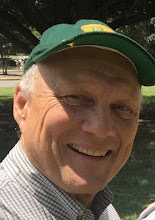I checked the street sign one day to see if it said “Skid Row,” craning my neck up and around. Dad always said that the Rescue Mission in El Paso was on Skid Row, and I thought he meant the street outside the doors of the mission. Maybe Skid Row is the side street, I thought, not the main drag.
My father took my brothers and me with him to Skid Row every other Sunday. He preached to the gathered assortment of street people, hitchhikers, alcoholics, and ladies of the night. We boys sang hymns in four-part harmony.
Dad always closed his message with an invitation for the assembled crowd, weary and hungry. He invited them to trust in Jesus Christ for their salvation. When the flush-faced, inebriated middle-aged man fell upon the railing at the front, kneeling to pour out his soul, one of us boys would kneel down beside him and pray with him.
Dinner followed the worship service. The mission had no money to give my father for his message, but they graciously fed his family. We sat down beside the street people and gratefully ate the fare. Often we departed with exotic leftovers, dates expired, from nearby grocery stores—lobster tails and strange cheeses.
This stretch of my childhood, when my father was only marginally employed, was the time when we were most economically deprived as a family. We returned to El Paso from Minnesota after repossessing a home my father built. We had a place to live on Easy Way near Canutillo, but Dad did not have a church to serve.
So trips to the Rescue Mission became our routine when I was 11 or 12 years old. Dad taught his four oldest children—four stair-step boys—to sing a capella in four-part harmony. We sang, Dad preached, and we prayed with those who responded.
I was introduced to the Care Effect at that Rescue Mission. My own soul warmed in the experience of caring. We helped the clients bring in from the sidewalk their possessions, captured in pasteboard boxes. They wore ill-fitting hand-me-downs. I did, too. I learned to care for these people, as my father did, and the caring transformed a time of hardship into an era of wonder and joy that I have never forgotten.
It marked my soul, those months of ministry at the mission. The effect of those days surfaced over and over again through the subsequent years. The vivid memories linger in my mind and heart to this very day. My understanding of life and my self-understanding were shaped by the activities and experience of caring for the down-and-out.
Dad took us to the orphanage across the border in Juarez, Mexico. We met and played with children abandoned by their parents. I held a toddler whose desperately poor mother rubbed hot peppers in her eyes so that, as a blind infant, she would generate greater sympathy and make begging more productive.
These childhood experiences of ministry to the poor were some of the first laboratories in which I learned the desperation of poverty and the power of caring. But they were not the last.
I have been a pastor for 35 years, and the poor have always been with me, just as Jesus said they would be. I find joy in seeking to lift the downtrodden, comfort the broken-hearted, and care for the dying. I mark the moment when I meet a person in need. The contact point is in and of itself sufficient reason for my involvement regardless of any future outcome. I do not justify my ministry by “results.” I attempt to view the moment of service as complete in itself.
The Care Effect is what happens to me if I am able to give myself fully in the moment of need, engaging the other person with sincere love. The act of caring draws my soul outward and upward—an exercise of the heart. I may feel satisfaction later with the results achieved, or I may be disappointed at the apparent futility of my effort.




No comments:
Post a Comment